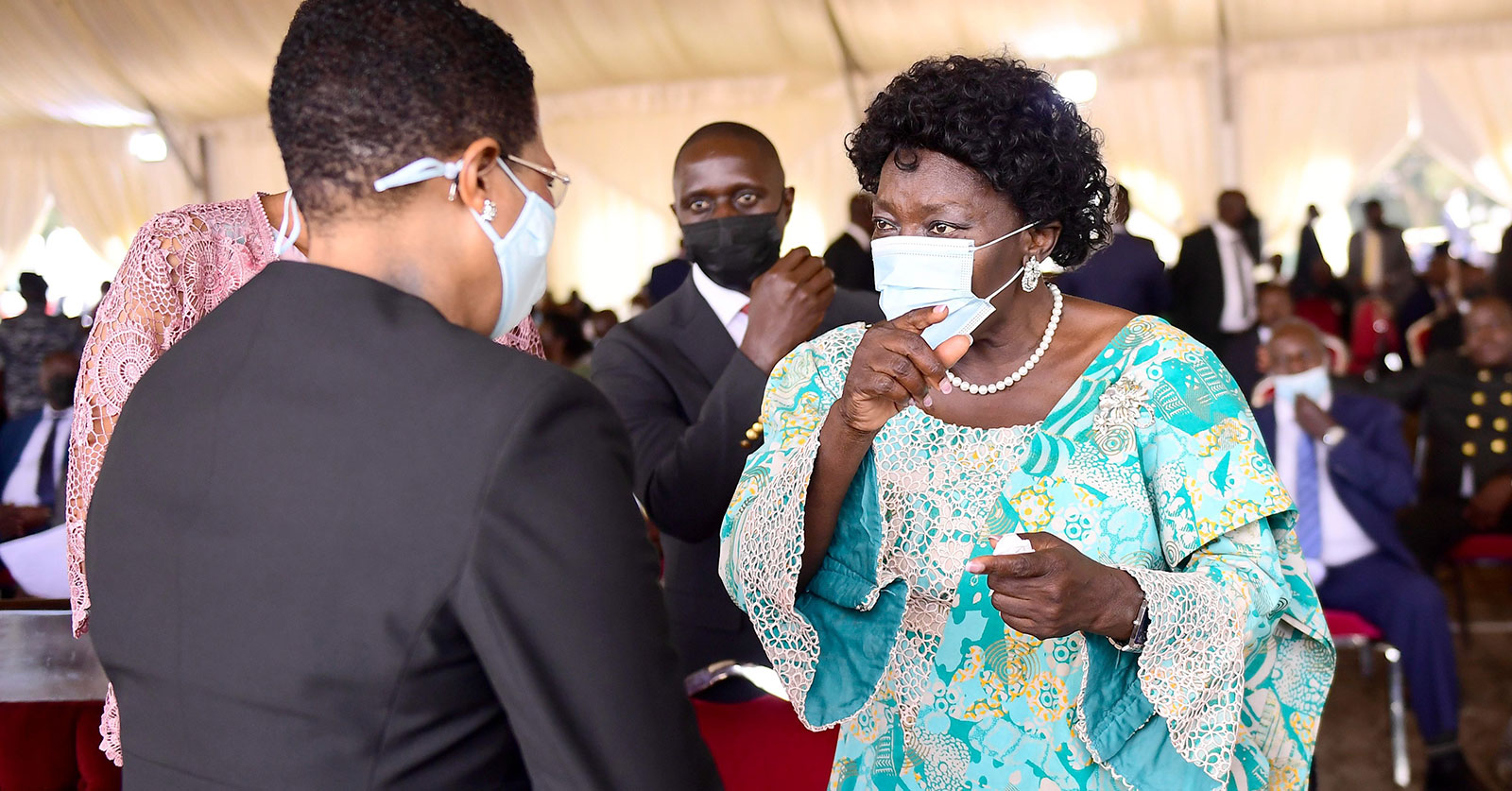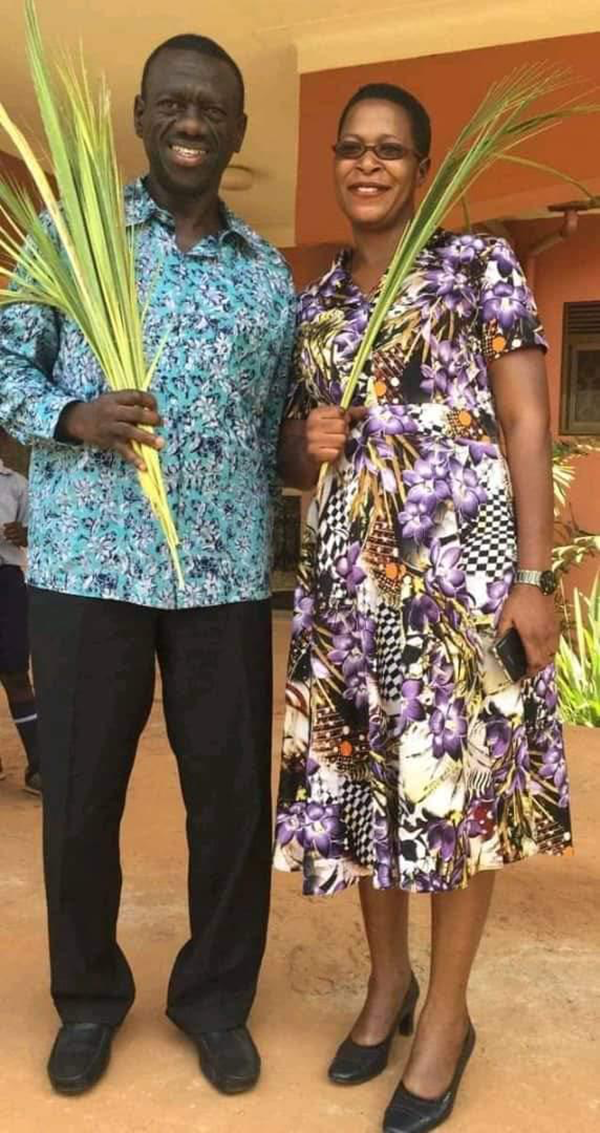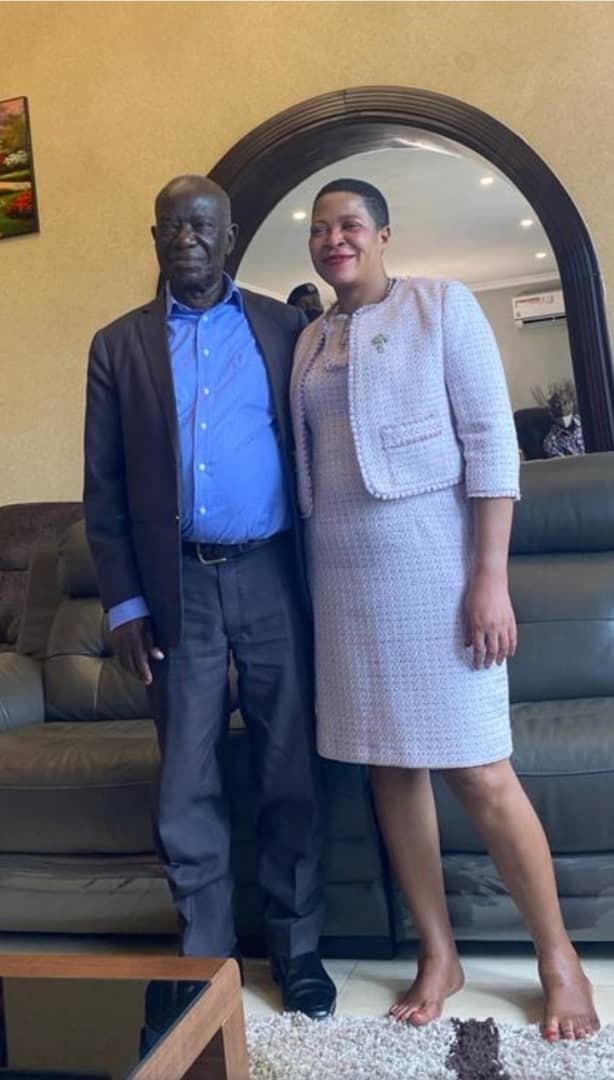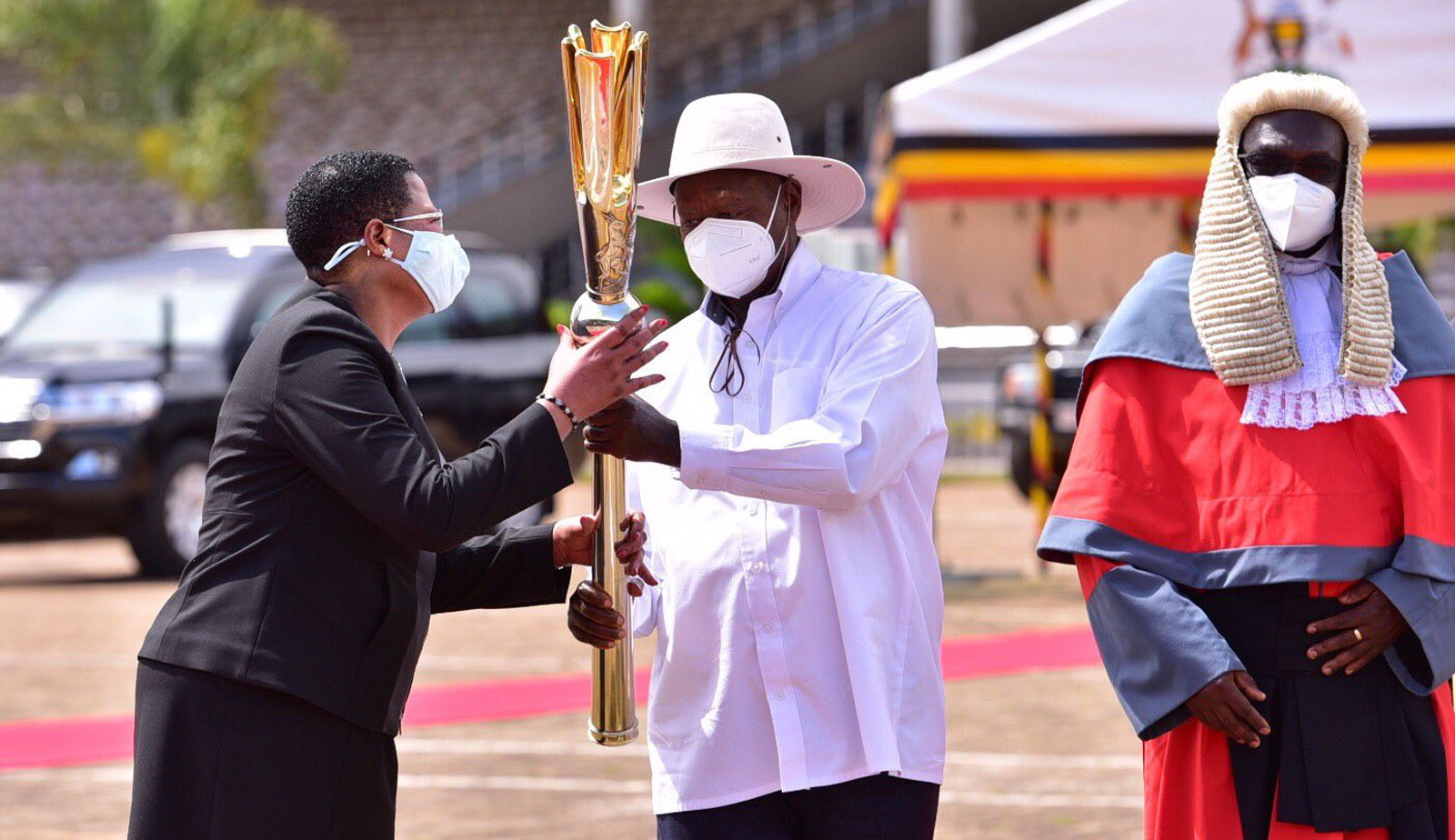The abrupt and unplanned transition from the late Jacob Oulanyah to his former deputy and now Speaker Anita Among raises questions about her readiness for the job and what calculations the President, whose wishes the party strictures are known to endorse, are.
Anita Annet Among, elected yesterday to replace her former boss Jacob Oulanyah who died on March 20, is a different Speaker of Parliament. To explain what we mean, we take a quick look at her recent predecessors.
The tradition under President Museveni since the current constitution was promulgated has been to tap some of the most qualified and experienced lawyers in the House for the position of Speaker. The late James Wapakhabulo, a seasoned lawyer who had chaired the Constituent Assembly (CA), was given the first opportunity to be Speaker under this constitutional dispensation in 1996.
With the constitution only freshly adopted, there was a lot of expounding and enabling legislation to be done, one of the most divisive of which being drawing up the Land Act of 1998. It is not clear if the powers that be discovered that letting Wapakhabulo crossover as Speaker after chairing the CA was a mistake, but he was allowed to do then job for just two years before he was moved on to become National Political Commissar for the then no-party system, which Museveni preferred to call the Movement System.

Anita Among with former Speaker Rebecca Kadaga.
But even after Wapakhabulo was moved on in 1998, he was replaced with the late Francis Ayume, another seasoned lawyer who had considerable mastery of the law, enough to get him appointed Attorney General when Edward Kiwanuka Ssekandi replaced him as Speaker in 2001. Ssekandi, a second-term MP by the time of his election as Speaker, had taught at the Law Development Centre in Kampala and was the lead counsel to the Commission of Inquiry into Violations of Human Rights, between 1986 and 1993.
Speaker Ssekandi was deputised by Rebecca Kadaga, who had been the minister for Parliamentary Affairs in the two years immediately preceding her elevation to the position of Deputy Speaker. After studying the law at Makerere University and the Law Development Centre, Kadaga also ventured into women’s law studies at the University of Zimbabwe, where she obtained a diploma and later a master’s degree in the subject.
Kadaga understudied Ssekandi for two terms and eventually became Speaker in 2011, whereupon Oulanyah was tapped to understudy her for the decade that followed. By that time, Oulanyah was sufficiently qualified for the task. A decade earlier, in the lead up to the 2001 elections, the late Aggrey Awori, who was toying with the idea of running for president, got into the habit of referring to Oulanyah as his in-coming Attorney General.
Oulanyah had graduated from Makerere University with a law degree in 1994, and then done a diploma in legal practice at the Law Development Centre, where he proceeded to work as a lecturer as he worked with friends to launch a private practice under Oulanyah, Onoria & Company Advocates. Before he embarked on law studies, he had completed a degree in agricultural economics at Makerere University.

Anita Among and Dr Kizza Besigye
Oulanyah in a flash
Oulanyah, those who knew him well say, “ate life with a big spoon”. But one didn’t need to know him well to know that fact. He would swiftly lift to his feet at any function to dance whenever a musical instrument was played, and would grab the instruments to play them himself especially when it was his Acholi traditional dance at play. He laughed heartily, cracked jokes and leaned forward to listen, spraying a gaze that indicated a genuine interest in people. When occasion allowed, he would ride away on his big bike, and also had a liking for boxing.
But hard as he played, Oulanyah cared deeply for the things he believed in, and he often castigated fellow legislators for what he saw as a low level of debate in the House. He liked to discuss ways of lifting the level of debate, and routinely talked about the need to tie legislative business to what the needs of the people.
To prove that he was a stickler for rules and legality, the 10th Parliament had passed the amendment to the National Social Security Fund (NSSF) law to provide for, among other things, savers gaining midterm access to 20% of their accumulated savings when they clocked 45 years of age or had saved for 10 years. The president declined to assent to the law until the last term elapsed, and eventually required Parliament to further amend it so that access to the funds would only be granted to those who had saved for at least 10 years and had also clocked 45 years of age.

Anita Among with Edward Kiwanuka Ssekandi
The term of the 10th Parliament elapsed before the law could be concluded and the business, as they say in the language of Parliament, was not saved. At the start of this Parliament, Speaker Oulanyah was faced with the Bill that had been returned from the President, requiring just slight amendments so that the agitating savers, who had been hit by the devastating Covid-19 pandemic, could get access to part of their savings.
Oulanyah decided that the law needed to be processed afresh, and that just making the amendments that had been agreed upon between the president and other stakeholders would amount to passing the law illegally. To soothe the agitators, the Speaker said the process would be speeded up, but that there would be no sidestepping the process. In a Parliament where we have recently seen a lot of suspending some rules whenever certain legislations are required to be passed quickly, it would have been interesting to see how Oulanyah would have coped if he had lived to preside over the House until 2026.
What Among may bring on table
There are situations when Parliament has had to pass certain laws very quickly, and suspending the rules or jumping certain parts of the process has become rather commonplace. To give a few examples, it happened in the lead up to the amending of the Constitution to delete age limits for presidential candidates in 2017, and it also happened recently when the Mining Act was passed.
On Museveni’s chessboard as he thought through Oulanyah’s succession, perhaps, it may have registered that it is easier to have in place a person like Among if the Executive were to rush certain things rushed through Parliament or do them in a certain way, than an Oulanyah-like Speaker. About a fortnight ago, for instance, the President met the members of the NRM Caucus and thanked them for speedily passing the Mining Bill. He asked them to also speedily deal with the Electricity Bill which is before them, in which the government among other things seeks to emend the law and ensure supply of cheap power to industrial parks.
Regarding the Mining Act, there were concerns raised by some MPs and other stakeholders that Parliament was stampeded to pass the Bill without sufficient scrutiny, especially with regards to allowing for sufficient public consultations. Those who hold this view argue that a bill of such significance and is also substantially technical needed to be given more time for scrutiny.
In some cases, the government may want speed in order to quicken certain processes, but in other situations those in power may want a rushed process to push through controversial agenda. That has happened in the past, like in the case of the age limit amendments cited above.
Among will perhaps look through the list of the MPs who expressed interest in the job she now holds and see how much of a blessing it is for her to have Museveni’s favour. And from Museveni’s perspective, especially going with his politics, having a person like Among, who acknowledges his role in her being Speaker, is much more preferable to having a person like Kadaga who felt that she occupied the position because of her qualities and profile, or even an Oulanyah-like person like Jacob Oboth who may waste the president’s time trying to clothe in legality whatever actions they have to take.
Oboth, a state minister for Defence, was among the almost dozen ruling party MPs who expressed interest in the Speaker job, but the party’s top organ – the Central Executive Committee (CEC) – didn’t even give them an opportunity to present themselves to the ruling party’s MP caucus for consideration.
A seasoned lawyer, Oboth, like Oulanyah, has chaired the parliamentary committee on Legal Affairs during times of controversy. Oulanyha’s committee midwifed the removal of presidential term limits in 2005, while Oboth’s prepared for the removal of the presidential age limits in 2017.
Oboth must have taken a long, hard look around the House and convinced himself that with Oulanyah dead and a replacement needed immediately, the circumstances favoured him. He dared to test his party again, as he did last year, and showed up at the party’s Electoral Commission to express interest. After doing so, he told journalists that he was the best possible candidate available to his party, saying he had integrity, experience and knowledge of the law.
What he didn’t have, he said, was money. And it was important that he highlighted the issue of money, because talk was rife last year that Among and Thomas Tayebwa turned the Deputy Speaker race into a bidding war. Among eventually prevailed through the party structures and Tayebwa appeared poised to, like Kadaga, go against the party and run as an independent candidate.
Museveni, those in the know say, convinced Tayebwa not to run and subsequently named him Government Chief Whip. Less than a year down the road, Tayebwa has moved to the position he wanted, with Among moving upstairs.
Once it became clear that Among would be the ruling party’s choice for Speaker, the mind would be tempted to flirt with the idea that Museveni would place Oboth in the Deputy Speaker slot, to bring some assuredness to the office of the Speaker. But Oboth is back to minding his business in Defence.
Tayebwa earned a bachelor’s degree in law from Makerere University a decade ago, but he is not regarded as a sure hand in legal matters, having spent much of the intervening years doing more business and politics than practicing the law.
Katuntu to the rescue?
So, in circumstances where Among will need counsel on complex matters of the law, she may perhaps have to turn elsewhere. And this is where Bugweri County MP Abdu Katuntu comes in handy.

One interesting fact about Among, Tayebwa and Katuntu is that they were all members of FDC. Whereas the first two crossed to the ruling party, Katuntu left FDC but remained on the borderline, running for re-election for the current term as an independent. A seasoned lawyer, Katuntu has already profited from his friendship with Among this term and his fortunes can only rise. Immediately after the MPs were sworn in, Oulanyah was indisposed and Among took charge.
The committees of Parliament had not yet been constituted and Among wasted no time to name Katuntu chair of a committee to monitor the use of monies that had been released to fight Covid-19. Some grumbling voices came out of Parliament, wondering why the Deputy Speaker saw it fit to name a committee, which they said was illegal and its findings would have no standing in law, instead of pushing for the composition of the regular committees.
Among would later also name Katuntu on an ad hoc committee to look into the proposed merger of government agencies, and the ruling party also named Katuntu chair of the committee on Rules, Privileges and Discipline. Katuntu’s committee’s biggest assignment so far was to recommend the censure of Mityana Municipality MP Francis Zaake over insulting Among on social media.
When Katuntu and Among were still in FDC, in the 10th Parliament, they were chair and deputy chair of the parliamentary committee on Commissions, Statutory Authorities and State Enterprises (COSASE), respectively. Theirs is a combination to watch going forward.
Among is a lawyer too, having attained her law degree from Kampala International University in 2018. She has, however, not had the benefit of practicing the law or act in different capacities that required her to interpret and apply the law very often. Before she joined the Forum for Democratic Change (FDC) party to compete for the Bukedea District woman seat in 2007, her interests were in money matters, having attained a bachelor’s degree in Business Administration from Makerere University Business School in 2005, and in 2008 attained a master’s degree in the same discipline from the same institution.
As a member of FDC, Among was elected deputy treasurer in 2009, and her fundraising skills were in evidence. At the time, the party needed money to buy off its headquarters, and Among was instrumental in securing a loan from a private money lender after banks feared to lend money to the opposition party.
But her political fortunes were not looking up, having lost the Bukedea District woman seat in 2011 to the then incumbent, Rose Akol of the ruling party. Within FDC still, there was unease about Among’s dealings, with one wing accusing her of luring party members into joining the ruling party. Many alleged that she had a direct line to Museveni.
Then 2012 happened. Winnie Kiiza, who would later be named Leader of Opposition by FDC president Mugisha Muntu, was facing a by-election for the Kasese Woman MP seat. Among arrived in the district as a much-needed injection of energy, and took up the task of driving Kiiza all over the place.
She also had a considerable amount of money to dispense, which endeared her to many in the area, and especially FDC party’s key stakeholders in the district. Kasese was firmly behind FDC and the Rwenzururu Kingdom under King Charles Wesley Mumbere was going strong. There appeared to be no way for NRM to regain influence in the area.
The one-month campaign period elapsed and Kiiza won back her seat, but Among literally never left Kasese. She would come and go as she wished from then on. Her close association with many formerly FDC and FDC players in Kasese is still going strong, and after the army’s ruinous attack on Mumbere’s palace in 2016, Among was trusted enough in the area to arrange meetings between the Kasese MPs and the President at his Kisozi ranch in Gomba District. She also brokered similar meetings with religious leaders from Kasese area. And many other things have followed.

Among receives instruments of power from President Museveni.
Among makes entry into the promised Land
Among eventually left FDC and joined NRM, something that many in FDC saw as just a homecoming. But, to pay tribute to her skill of juggling people, a number of FDC members still can’t criticise her on record. She befriended many and still maintains ties with them. And she quickly did the same with National Unity Platform (NUP) politicians after the 2021 elections.
So deep was her influence on opposition MPs that in the lead up to the Speaker and Deputy Speaker elections in May last year, the opposition parties failed to agree on a candidate to compete against her. FDC’s Yusuf Nsibambi, who has close links with NUP and is a member of the Shadow Cabinet, could potentially get about 100 votes if all NUP and FDC MPs voted for him. In the end he had to settle for 35 votes, while Kampala Central MP Muhammad Nsereko, an independent candidate in the race, picked up only 24 votes. Among went home with 415 votes or 88% of the votes cast.
The race for Speaker was tighter in May 2021, with Oulanyah facing the more formidable Kadaga, and in the end the late Speaker’s 59% vote harvest dims in view of Among’s 88%. For the Speaker race, Kadaga, who insisted on running despite her NRM party preferring Oulanyah for the position, polled 197 votes against Oulanyah’s 310, while FDC’s Ibrahim Ssemujju Nganda went home with 15.
It is therefore undeniable that there is a magnetism about Among, but it is not anything like what attracted people to her recent predecessors. In letting her become Deputy Speaker in the first place, Museveni might have calculated that Oulanyah would provide the software and she contributed the hardware. But when death torpedoed the plan, Among’s time arrived many years earlier.
She is a new Speaker with a different profile. It is a clean slate we are looking at.

